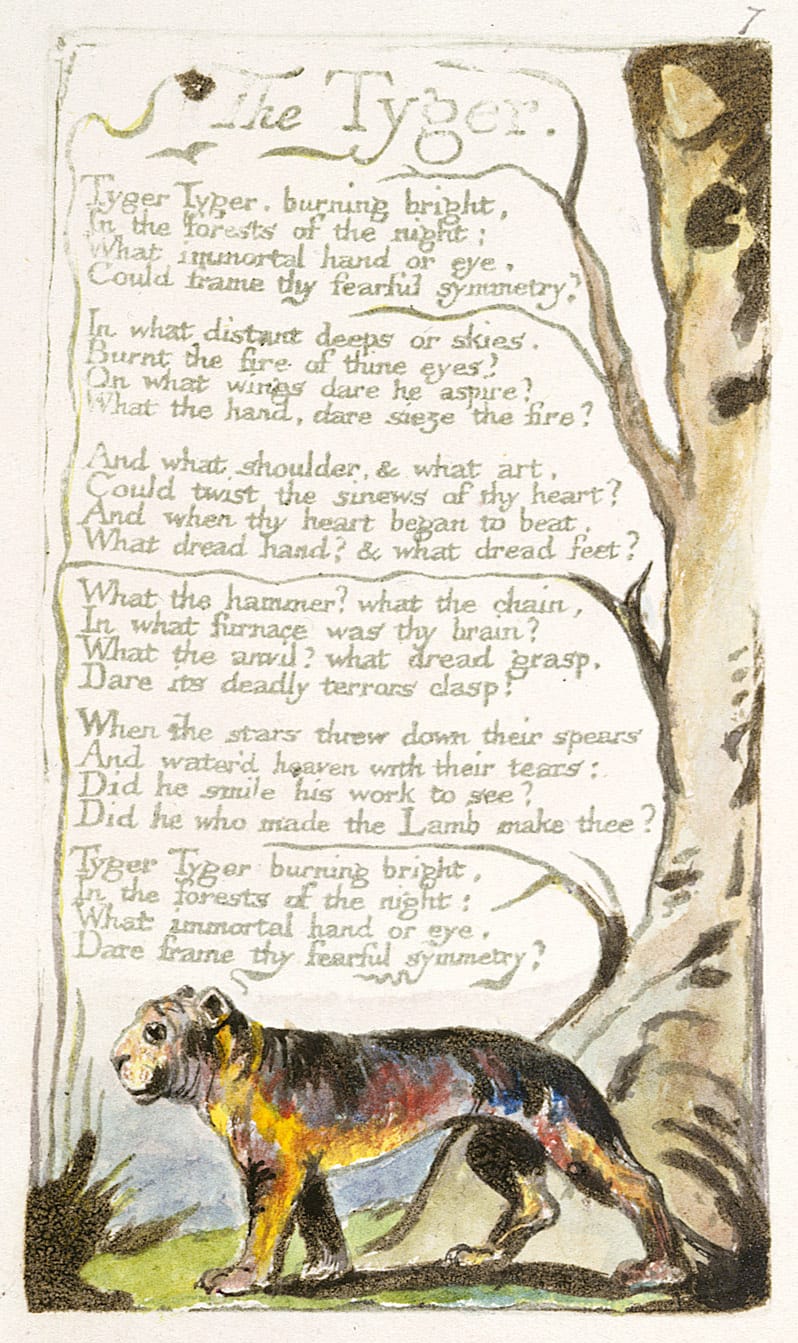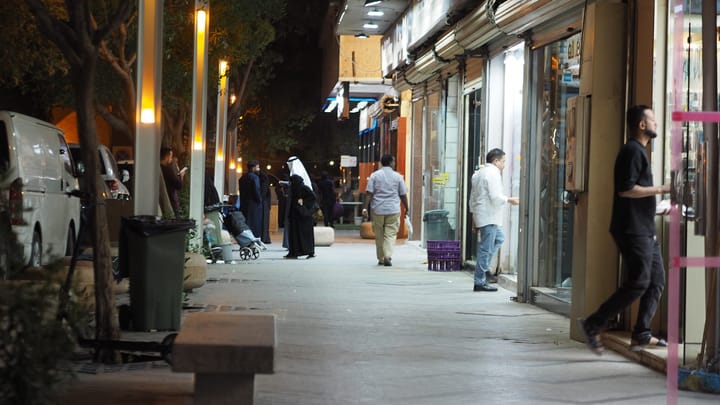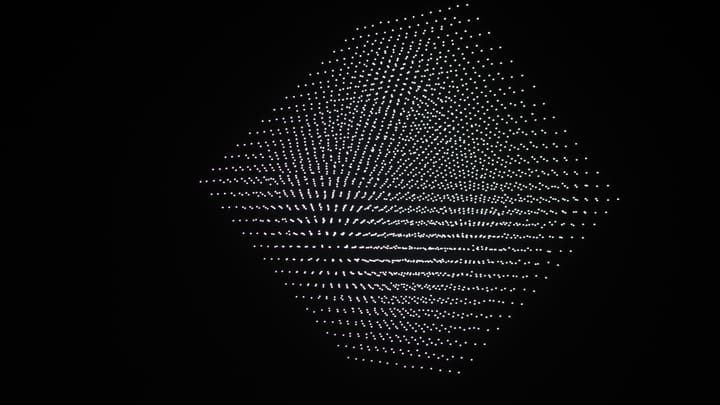Minus—a theatre like no other—at & in collab with EMC: workshop 1 & HI (Human Imagination)

The imagination has ten commandments. They are written by Jan Švankmajer. You can read them here, at the bottom of this post, Mario Levrero’s unnecessary masterpiece The Luminous Novel: excerpts therefrom; the part about a terrifying experience; illustrated with images by Jan Švankmajer; his 10 Commandments follow.
You will see at the linked post I excerpt short parts of Levrero's novel. They are illustrated with images by Švankmajer. The cause of the unnecessary has been in my mind recently. I almost pursued it as a theme in the post called molecular communism, which, like the ten commandments deals with the imagination. HI—human imagination is our best weapon, against, being the apotheosis of neo- and neuro-liberalism and the societies of control which, in a postscript of the same name, Deleuze describes, AI, in the war on the imagination currently being waged in institutions committed to teaching the young, often with the complicity of those teaching at them. I heard it described recently as a new Red Scare, a McCarthy-style witch hunt, to remove from their positions teachers who refuse to support AI and the social acceptance of narcissism to which AI leads—in its transfer from a personal or individual impulse to one acting at the level of society. (I discuss the Narcissus Machine, rather peremptorily, in On the advent of AI; I heard what I'm calling the war on the imagination described as McCarthyism on the podcast How Did Analytic Philosophy Become the Ruling Class of Thought? Christoph Schuringa Explains; also, as you see, on youtube. Adam C. Jones, speaking for Acid Horizon, makes the point that Analytic—or Institutional—Philosophy is the CBT of philosophy: both Cognitive Behavioural Therapy and neuroscience-inflected neoliberalism come up in unpacking the rat in the box, a post written almost wholly by ChatGPT 4o.)
McCarthyism, Christoph Schuringa explains, never really went away. It remained latent in American institutions—hence the irony of calling Analytic Philosophy, which Schuringa points out is almost an anti-philosophy, Institutional Philosophy. These are practices which, with the complicity of the institutions, in America and outside it, belong to the war on imagination.
The question of how Minus Theatre fights back, championing HI against AI—although using the former acronym only demonstrates how the latter dominates—didn't engage us at Monday's workshop, only that it does. This is after all why this series of workshops, in collaboration with and with the kind facilitation of Ellen Melville Centre, has happened. The core members of Minus from the period 2013 – 2017 came. And we talked it over for an hour or so. The how question was left open.
In the second hour, after the arrival of a new Minus, Yuka, who had seen a post about the workshop online, and coffee with 'impossible' lemon pies, we went into walking, a warm-up but much more importantly attuning. I overdid the instructions but basically it works like this:
- get in tune with yourself—attend to how you walk
- attune yourself to the room and explore every aspect of it—attend to how the room affects your walk
- attune yourself to the others in the room—attend to how where and how they walk affects you, how where you walk and how affects them
In the last part, whether it's these particular people or others new to this, people begin to do odd things. Tensions build across the space along the lines of sight—walking also involves leading with the eyes, the ears, the head, taste, touch, all the senses—and movement—attuning also to the patterns of movement of those whom you cannot see, using extrasensory perception and cultivating extraordinary sensitivity to 'see' them: I mean sight-lines in this expanded sense. The ones who've done it before encourage this, those who haven't tend to try and ignore it, to walk away from developing connections, deepening and strengthening, feeding really, lines in the field of energy, or phase space these basic instructions create.
At a certain point Rasoul came in to let me know the staff at EMC were leaving. Perhaps it wouldn't have happened if he had addressed himself to all of the group at once, but there was a sudden pressure drop, as the energy dissipated, as sudden as if somebody had turned off the grid. It was slow work to restore lines . . .
Now I think about it, and this is what I wanted to tell you and myself, these lines are not of communication. No matter how physicists insist on it, there is in the energy that comes into awareness no information. That everybody, Yuka included was aware of it was obvious. Because it went away and then again slowly arose, like a flame.
I use the simile deliberately. A beautiful passage in Loren Eiseley's The Unexpected Universe: he is driving a car through woods at night. He sees a sign of life, it's an animal. It keeps pace with the car, darting in out of the gloom and flaring up, but never close enough to see clearly.
This is the virtual. Or like the virtual—it takes the form of the virtual. He calls it and doesn't in any other way identify or describe it, apart from it being alive, a flame.
And this is what we are dealing with in Minus. It's already there and we ignite it. I suppose I can also call it the imagination: the work of imagination—the leaping flame. If we can ignite this, so people can see it and feel it, we would have a weapon.
What starts me on this track is what happened after walking. After the form of the virtual had made itself felt, or the imagination. It's a Minus tradition: each new member of the group, even if there for once, is asked to use the language of theatre to tell their life-story. It was Yuka's turn. I gave her 4 minutes—also a tradition, an aspect of the minoritarian conventionalism I write about in my exegesis, in other words, a running joke—to tell her life-story.
So she began. We'd already established when walking-working she would use Japanese. She began to tell the story of her life. I come from Japan, she started, in English.
No, I said. I love your English, but please, in your first language. I didn't repeat the instruction regarding the language of theatre. I should have. It is, use the language of theatre over your first language. In this work, your first language is only one possible gesture, a way of making sound, and connecting of course to the imagination that your language brings, among infinite other gestures in the language of theatre. Space, I usually say, is the most important: giving yourself space is showing generosity to yourself. Space therefore in this usage implies time.
She started, 私は日本から来ました。When asked for comment, after the life-story, Chenby said, when you began speaking in Japanese I almost cried. It was very moving.
Then Yuka mimed activities she enjoys, swimming, some sort of martial arts, and lunging with both hands clasped for a low ball in volleyball. Jeff commented that when she went down for the dig—because we have imaginations—it could have been anything. He took the gestures in other directions, imaginatively; and this reminded me of what we are doing here.
I have thought of the stage—which is any working space, in the invisible work of rehearsals and workshops, in the visible space of performance—where theatre is practiced as having a transcendental role, a void underneath it, freeing theatrical gestures, including language, from the insides of actors: to be taken anywhere. A gesture of suicide, putting the rope around one's neck, pulling the rope, can take place at a hairdresser's. You are showing the hairdresser how long you want your hair to be. Given new meaning gestures gain new energies, flames, stirring and firing the imagination.
Jeff said he liked the physical gestures, through them he made emotional connections—and developed them in new directions. In other words, the deeper connection to the insides of the actor gives theatrical gestures, including language, as I have noted, as Chenby commented, an energy; and therefore we started Minus in 2013 with stories that were felt intensely by the actors. We called it toil—theatre of the individual life—and then thief, because of the way the latent or virtual energy was stolen by other members of the group to produce new images. (Perhaps images is a better word for theatrical gestures, or would be, except that it sits in the realm of sight; and gestures goes to the physical body distributing itself over space and time, or what in the exegesis I call sarx, the sarcous.)
What I am drawing attention to here is the language of connection when the stage itself is like a blade, undercutting images and setting them free to make new emotional or affective connections, in turn, undercut, made fun of even, in the not-cruel way I wrote of here. And at the end of the 'play' of gestures and images, when the energy leaves the theatrical image, the play of gestures, we laugh. This happens a lot.
I sit here surrounded by my papers for Minus workshops, rehearsals, sessions, from seven, eight years ago, ready to make a fresh start. These detail exactly what we did, not where we got to, but what we did. They contain my instructions for the exercises and statements to remind me why we do this—as Chen said in the part of the workshop led by Fred Landers, a play therapist and I thank him for the opportunity to collaborate with him (thanks to him neuroliberalism entered my critical vocabulary); I forget the exercise but it was not easy in that it was weighted with meaningfulness, Chen said afterwards, Why do we do this? I spent a long time trying to understand why the Minuses, including me, had so much trouble with the therapeutic exercises using imagination, but took lightly the tasks set in these papers that surround me.
One such statement, written in pen notes "there can be no encounter without language of elements levels". If you wanted to publish my exegesis, these documents would make a good addition as an appendix. You would however find them repetitious.
We start with the walking, attuning, as Esa Kirkkopelto puts it, first to ourselves, in all our different aspects, moods, associations and the physical changes we encounter in ourselves when walking, then the room in all its different aspects, textures, moods and so on, finally to the other people in the room. There are differences from each set of instruction to the next. Walking was a constant, and I introduced it into workshop 1 2025. In fact, after I finish writing this I will be making up a new set of notes to take to workshop 2 later today.
Walking. The differences relate to different stresses. For example, the words 'encounter' or 'elements levels' imply 1) that this sense of encounter with a philosophical source in Deleuze meant prioritising interactions between two actors; 2) elements levels is clearly indebted to the work of Alphonso Lingis. Al's philosophy—I think it's Graham Harman who attributes to Lingis a new style of writing philosophy. It was one I found extremely compelling and it influenced my own greatly—I regard as being an untapped resource for environmental thinking in the time of climate change. The elements are those we rely on and that all life relies on. The levels are phenomenological levels of things and beings showing themselves to us. My notes then reflect philosophical and ethical commitments I was concerned with at the time. Repetition was important to give a structure to the group's experiments and just as much a way into the work, out of life as normal, into the Minus mindset. Now is the time for the work of imagination.
I wrote The Secret Commonwealth, Philip Pullman – his dark precursor to the work on the imagination, excerpting Pullman's novel, ending in some slight observations of mine, while thinking things through. The novel as I say there couldn't have been a better choice. Lyra has lost her imagination. She has lost it explicitly under the influence of philosophical commitments—a new materialism that has no regard for the work of the imagination. The backdrop is a social setup governed equally as explicitly by an ecclesiastical order. On one side the new materialism, which resembles our modernity. On the other, religious institutions enforcing their dogmatic readings of imaginative realities, like the fact that every person who is regarded as complete has a daemon, an animal, of the opposite gender, who lives over the duration of their lifetime and will disappear when they die. The wriggle room between the different orders is the quantum-theory-like Dust, which is thought materially to exist and therefore plays into the new materialism but knowledge of which the religious order seeks, sometimes violently, to suppress.
And the imagination is lost, like it has been in our own time, when there is a new materialism—unlike the philosophical genre of that name—endorsing for its utility in achieving material ends AI. And when there is a new traditionalism, a new conservatism that is explicitly religious. I wondered this morning in the shower whether the new traditionalism isn't for those who can afford it. Anyway, human imagination (I've called it for this reason HI) seems to operate quite differently to that which would be useful in securing material results and outcomes, as well as to counter the new religious certainties of an increasingly conservative society, albeit that they are spouted by those who make use of them to secure material ends like power and influence. (see also above for the new McCarthyism)
What is HI and how does it work?
I've already called it the virtual. It is the form of the virtual. As such it is a reflection, not in space, in time.
We're used to mirrors and therefore reflections in space, on water, showing the trees upside down, on shiny objects, their contours distorting what they reflect and even on the surface of the eye. In space clearly it doesn't, but in time the form of the virtual requires a duration. Although it arises momentarily, transiently, it has a temporality. To spatialise it we would say the virtual has an extension in time.
The form of the virtual as a product of the imagination cannot be put into space. It cannot be frozen in place. It cannot therefore be examined and analyzed, as Master Brabandt says in The Secret Commonwealth, Pullman's book. It can however be followed, in practice. And it is this practice I am considering Minus to pick up. Then . . .
. . . as Master Brabandt also says, if you have to think it, as you'd see something out the corner of your eye, out the corner of your mind, what is it? In that earlier post quoting him I write, and have quoted it from Pullman at the top the post, that the work of imagination is not to make things up. It's about perception. How?
The work of imagination, as perception is out in the world, is what perception does. There are several assumptions: Bergson's, that perception is outside, not in the perceiving subject, human or animal. For Bergson, the perception of a stone, since it is affected by every other particle of matter and physical force in the universe, is absolute. For him, the human's is selective, primarily selecting for what is useful, at the time it is perceived. From this time of perception we get the idea that perception coincides with us and our duration and can say things like, Well, that's just your perception! when what we might say is, Well, that's just your selection!
The other assumption, from Spinoza, is that god or nature has infinite attributes. In fact, he says, god or nature might, but we perceive only two, thought and extension. From Bergson I get the idea this doesn't suffice our particular case. Thought contains many different perceptions which imagine in philosophy concepts—so philosophy is a perceptual (outside, belonging to god or nature) attribute—and in scholarship and philology give virtual form to different authorities, that they vivify, make live; then poetic perception thinks through the outside of words, theatrical perception, as does cinematic perception, imagines new images, each distinct from the other. And extension being what we see is not constrained to sight, to this perception. It can be heard, felt, bodily conveyed through movement. And here a very interesting form of the virtual: the physical body that Spinoza says of, and Deleuze is fond of quoting him say, we don't yet know what it can do. That is, we don't yet know what it can imagine.
The body, sarx, flesh has in each individual cell its own perceptions. These reflect in time as virtual forms, their future, and are there given form, reflecting back on the present, but—they are not yet. These are not yet their forms, until, for Deleuze, they are actualised. Not actualised, however, they are no less real. . . Seen out the corner of your eye, thought out the corner of your mind.
This is my reason for saying that they are already here. The works of the imagination. They are in the room Minus walks. They flicker in and out, flames in the trees, virtual forms.
to be contd. – since I must now work on my notes for today's workshop


